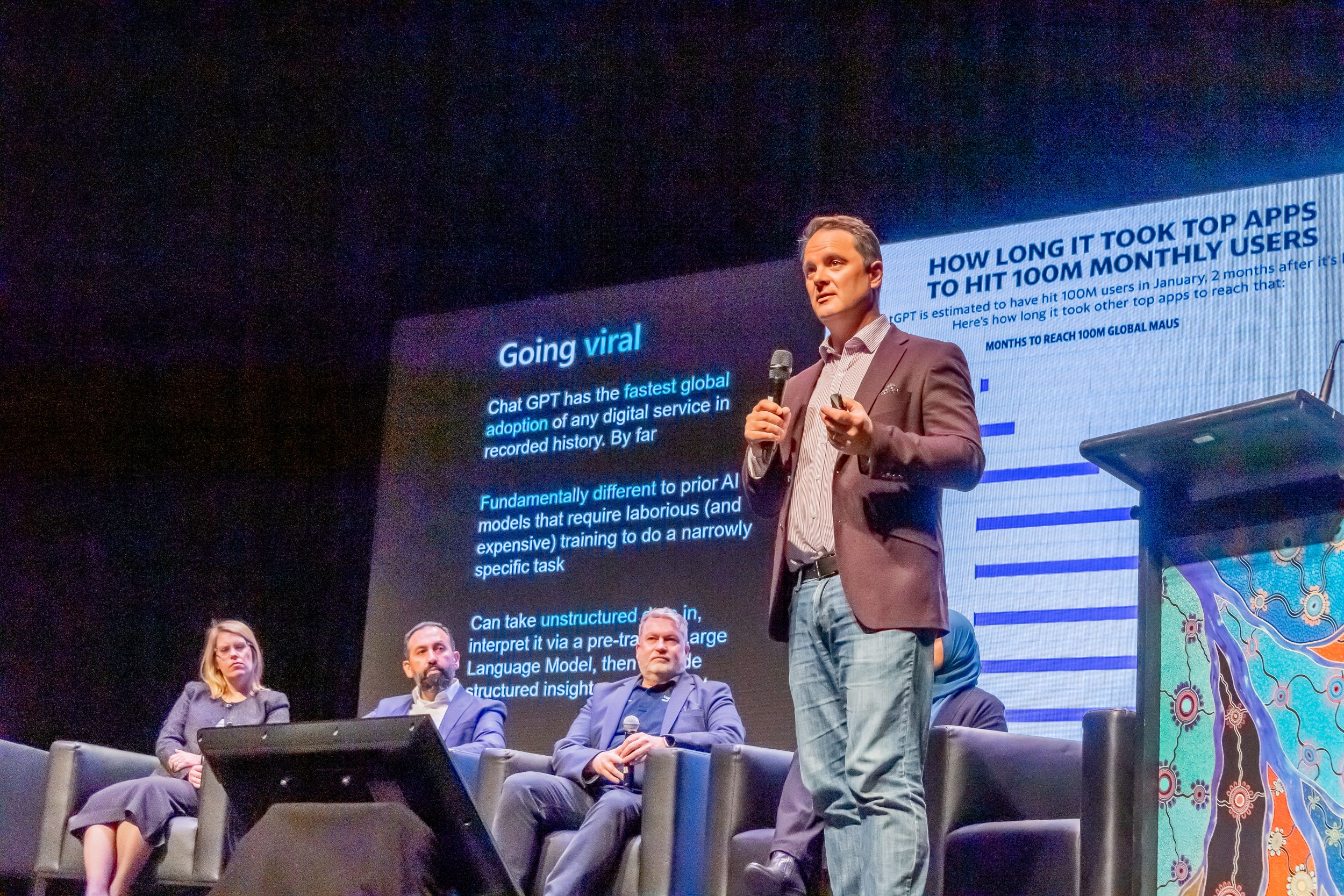
What are the implications of AI in healthcare?
Interactive discussion on using Generative Artificial Intelligence in health care at this year’s Innovation and Research Symposium.

What is the future of artificial intelligence in health care, where is it headed and how will it be controlled?
These were among the questions in Friday morning’s panel at the Innovation and Research Symposium for this year’s Sydney Innovation Week.
Hosted by Microsoft’s ANZ Chief Medical Officer Dr Simon Kos, panellists presented their ideas on the use of generative artificial intelligence (AI), such as ChatGPT, in health and medicine.
“I think the way we’re going to use it is in a co-pilot scenario. A human driving the plane but assisted by technology,” Simon said.
“Computing will be able to do the heavy data analysis, faster and more accurately than any human. But the art of medicine is uniquely human.”
Panel members included Microsoft Senior Data and AI Specialist Baker Tamory, Macquarie University’s Australian Institute of Health Innovation Professor Farah Magrabi, Clayton Utz Special Counsel Monique Azzopardi, District Executive Director Medical Services, Clinical Governance and Risk Dr Andrew Hallahan and Marc Pelusi, Director Service Delivery within the District's Digital Health and Innovation service.
When thinking about the data we use, Andrew explained that we need to make sure local nuances are reflected to make the content is truly reflective of our community.
“My hope is that when artificial intelligence is applied, we can bring back some of the humanity of healthcare and make our systems better,” he said.
As a specialist lawyer, Monique shared that under the Australian Law and Privacy Act, health information is categorised as sensitive information and afforded a higher degree of protection because of the very nature of that data set.
When dealing with health information it is therefore important to consider the privacy risks and data security, not just at a local level but how it is dealt with federally.
“We need to look at risk on a spectrum. Generative AI does not replace the role of a suitably qualified medical provider,” she said.
“It will be really important we don’t lose human knowledge or expertise in the input and output, through assessment and evaluation.”
The hardest part, according to Marc Pelusi, will be implementation.
A wide variety of stakeholder input is needed to connect and share stories about the process, so we must continue to make sure that data is trusted and useable, he said.
“The implementation won’t be linear, and we need to respect that complexity,” Marc added.
Professor Farah Magrabi also pointed out that there is tremendous potential for new generative AI applications, but health practitioners should be careful.
“We need a little bit of caution, and also remember it’s not a clinical system,” she said.
“Systems are a continuum, there should be very good clinical governance around this.”
All panellists agreed that the human factor is critical, and that without human intervention generative AI applications would not be sustainable in the health care system.
“Models have limitations, humans are uniquely creative,” Simon remarked.
Since 2012, with support from our amazing partners, the Sydney Innovation and Research Symposium during Sydney Innovation Week has created opportunities to collaborate, inspire, dream big and learn.